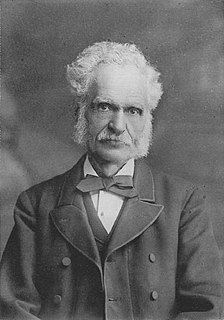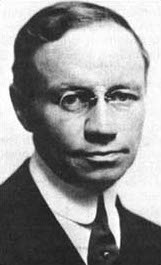A Quote by Henry Walter Bates
I was obliged, at last, to come to the conclusion that the contemplation of nature alone is not sufficient to fill the human heart and mind.
Quote Topics
Related Quotes
The study of letters is the study of the operation of human force, of human freedom and activity; the study of nature is the study of the operation of non-human forces, of human limitation and passivity. The contemplation of human force and activity tends naturally to heighten our own force and activity; the contemplation of human limits and passivity tends rather to check it. Therefore the men who have had the humanistic training have played, and yet play, so prominent a part in human affairs, in spite of their prodigious ignorance of the universe.
Now I want you to think that in life troubles will come, which seem as if they never would pass away. The night and storm look as if they would last forever; but the calm and the morning cannot be stayed; the storm in its very nature is transient. The effort of nature, as that of the human heart, ever is to return to its repose, for God is Peace.
We have two main instruments: the mind and the heart. The mind finds it difficult to be happy, precisely because the mind consciously enjoys the sense of separativity. It is always judging and doubting the reality in others. This is the human mind, the ordinary physical mind, the earth-bound mind. But we also have the aspiring heart, the loving heart. This loving heart is free from insecurity, for it has already established its oneness with the rest of the world.
Democracy must stand or fall on a platform of possible human perfectibility. If human nature cannot be improved by institutions, democracy is at best a more than usually safe form of political organization . . . . But if it is to work better as well as merely longer, it must have some leavening effect on human nature; and the sincere democrat is obliged to assume the power of the leaven. [Progressive]






































